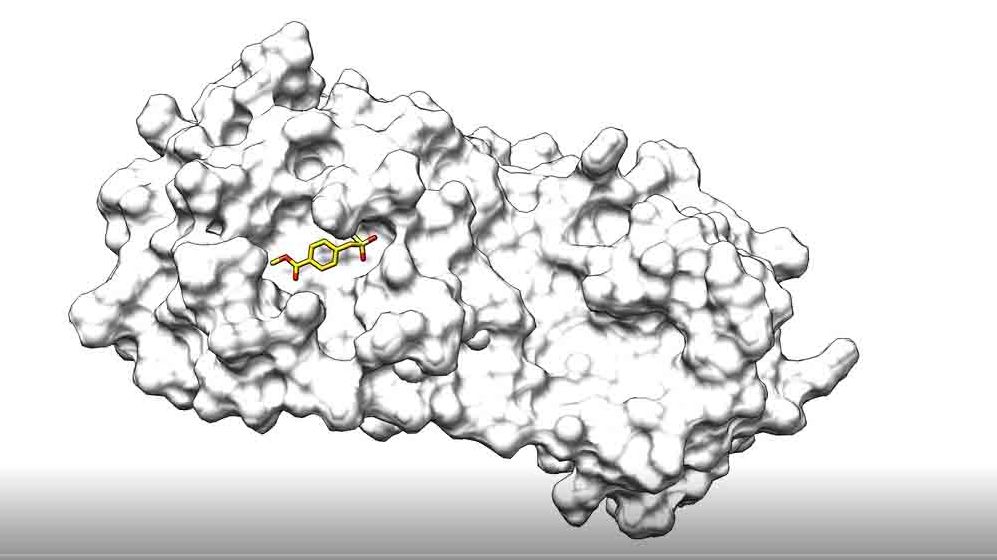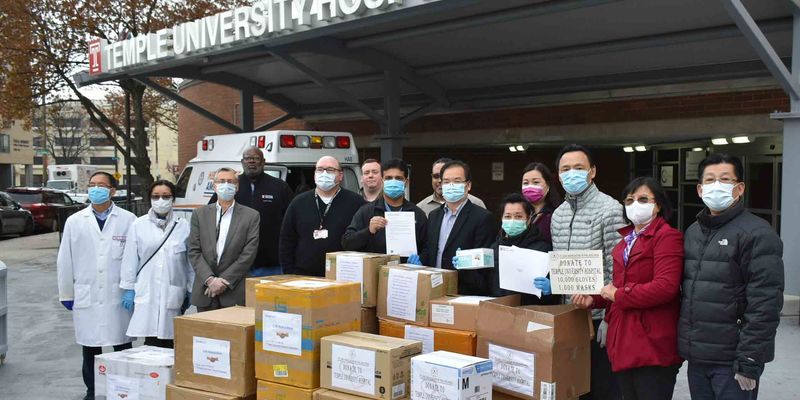A distributed computing project takes on COVID-19
Chemistry’s Vincent Voelz applies the power of Folding@home to coronavirus research.

Researchers around the world are working at unprecedented speed and scale to understand the coronavirus, develop a vaccine and discover new drugs to treat COVID-19.
Now, citizens, already doing their part to stop the virus’s spread through social distancing and other measures, can also help develop new therapeutics by running simulations on their computers. Performing specific calculations by coordinating and distributing the work across thousands of separate computers is called distributed computing.
Along with graduate students in his lab, Associate Professor of Chemistry Vincent Voelz has been working with an international team of researchers to computationally screen potential inhibitors of the coronavirus’s main protease, an attractive target for new antiviral drugs. And they’re using the distributed computing network Folding@home to do it. Folding refers to the processes by which a protein structure assumes its shape so that it can perform its biological functions.
“Our group uses the tools of molecular simulation and statistical mechanics to investigate the structure and function of biomolecules,” says Voelz, who has worked with Folding@home since 2007 while he was a postdoc at Stanford University, where the distributed computing network started. “It’s a quick jump from that work to using our expertise in biomolecular simulation to help fight COVID-19.”
For the coronavirus research, Voelz is partnering with researchers at Memorial Sloan-Kettering Cancer Center and Diamond Light Source. An X-ray crystallography group in the U.K., Diamond Light Source has done groundbreaking work in solving more than a thousand different crystal structures of the coronavirus main protease and discovering several drug fragments that bind to sites on the protein.
“When the virus gets inside a cell, it co-opts the machinery of the cell to assemble more copies of itself and replicate,” explains Voelz. “If you can inhibit the protease, you can inhibit a necessary step in the virus’s lifecycle.”
The combined computing power of Folding@home’s thousands of users is being used to virtually screen a huge number of potential drug compounds. These simulations will help prioritize which molecules will be synthesized and analyzed by researchers aiming to rapidly develop new therapies against the coronavirus.
“We now know that there are many drug fragments that bind to specific places on the coronavirus’s protein structure,” says Voelz. “These are leads for further drug development. The dynamical information that we get from the Folding@home simulations is really hard to measure experimentally in a lab.”
In early March, about 30,000 users had downloaded the Folding@home software and were active participants in the COVID-19 project. Several weeks later, that number had grown to more than 700,000. As of April 1, there were more than 1 million people participating. “Combined, we are now the largest supercomputer in the world,” says Voelz, who notes that the online gaming community is a big contributor. “We’ve broken the exaFLOP barrier, a measurement of operations per second that is the equivalent of ten times the compute power of the world’s fastest supercomputer.”
According to Voelz, the speed of the coronavirus’s spread around the world has inspired many researchers to remove “bottlenecks” in how scientific knowledge is developed, analyzed and shared.
“Scientific organizations are sharing information in an unprecedented way, and people around the world are banding together to solve a very difficult problem,” says Voelz. “Folding@home’s kind of citizen science or crowdsourced science can be very powerful. The more people get turned on to this idea, the more vitally important basic science we can do.”
Want to help find new drug therapies to fight COVID-19? Go to foldingathome.org to download the software.
—Greg Fornia




